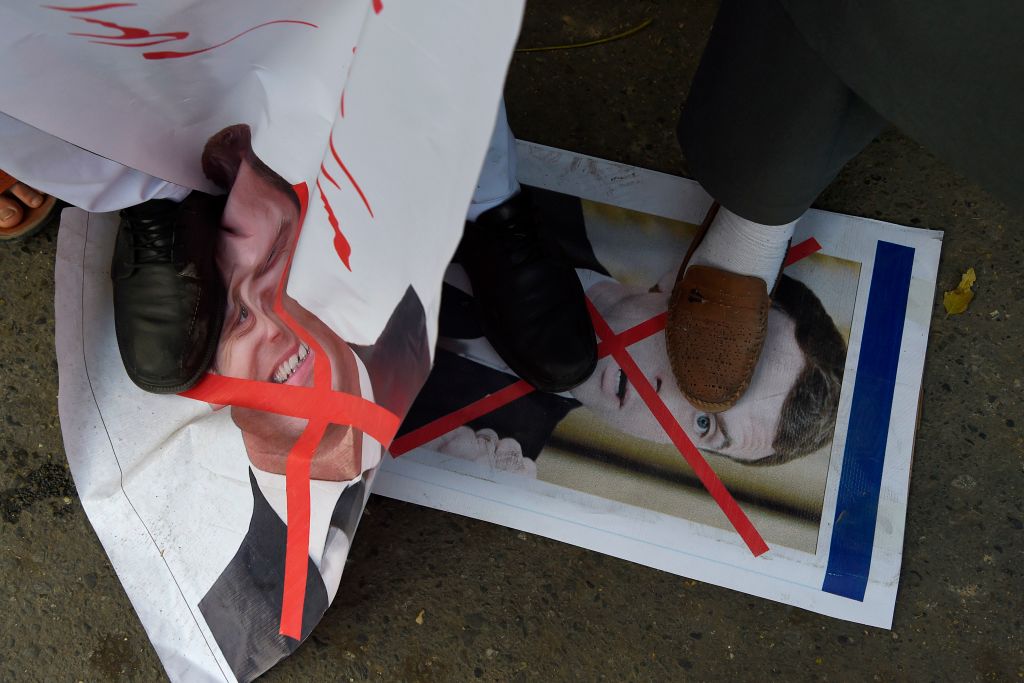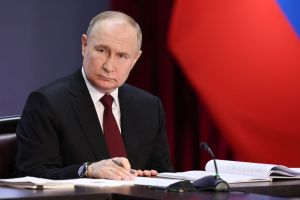Emmanuel Macron has once more infuriated many in France, but this time it has nothing to do with COVID passports or mandatory vaccination.
In an address to the nation this week, the president discussed the disturbing scenes from Kabul as the Taliban invaded the capital of Afghanistan. France, he said, would be a haven for those Afghans ‘who share our values’ but nevertheless the country must ‘anticipate and protect ourselves against significant irregular migratory flows that would endanger the migrants and risk encouraging trafficking of all kinds.’
His rhetoric went down badly with much of the French left. ‘Sordid’ was how two MPs of La France Insoumise summed up the president’s speech, while the Green MEP, Yannick Jadot (a candidate in next year’s presidential election) tweeted that he was ‘aghast’ to hear Macron describe those fleeing the Taliban as irregular migrants rather than the victims they were.
The Green mayor of Grenoble, Éric Piolle, said that Macron had ‘shamed France’, and he has stated that his city is ready to welcome Afghans seeking refuge from the Taliban. Similar messages were issued by the mayors of Lyon, Besançon, Strasbourg and Tours, all controlled by the Greens; the Socialist mayors of Marseille and Clermont-Ferrand have also offered their cities to Afghans.
There was a different reaction from Christian Estrosi, the center-right mayor of Nice. Asked in a radio interview on Wednesday if his city wanted an influx of Afghan refugees, he replied in the negative, and called for strictly-controlled European quotas. He justified his response by explaining that, in recent years, Nice has suffered two appalling attacks from Islamic terrorists, the first in 2016, when 86 people were murdered, and the second last October, when a Tunisian attacker slaughtered three Christians in their church.
Estrosi expressed his sympathy for the Afghans but said that his overriding concern was that the Taliban seizure of Kabul constituted a new threat for the world from Islamic terrorism.
Like Macron, Estrosi was excoriated by the Greens — who have replaced the Socialist party as the voice of the French left — with his statement denounced as ‘insupportable’. But Estrosi has the support of many French people, plenty of whom are skeptical that their president will act with the firmness he promised on Monday.
After all, it’s not the first time Macron has vowed to bring order to the EU’s chaotic borders. In a speech in September 2017, Macron outlined what the Elysée billed as a ‘new initiative for Europe’. The president said there were six keys to European sovereignty, the second of which addressed the migration challenge.
‘We must create a common area of borders, asylum and migrations, to effectively control our borders, welcome refugees with dignity, integrate them fully and swiftly send those who are not eligible for asylum back to their home countries,’ he pronounced, adding that it was imperative that the EU ‘establish European border police that ensures rigorous management of borders’.
Four years on and Europe’s borders are as porous as ever, as the Tunisian terrorist proved last October in crossing the Mediterranean to commit his outrage in Nice. Earlier this month, a Rwandan immigrant — already under investigation for setting Nantes’ cathedral on fire last year — was arrested on suspicion of murdering a Roman Catholic priest in western France. It has since emerged that the alleged killer had already been ordered to leave the country.
But there is another reason why many in France are hesitant about accepting an uncontrolled number of Afghans into their country. They recall how tens of thousands of Afghans (20,000 alone in the city of Héra) took to the streets in 2015, two weeks after Islamists had shot dead the staff of Charlie Hebdo, to protest against the magazine’s subsequent issue that depicted the prophet on its front cover.
And they remember, too, another demonstration against the satirical magazine in 2019 that lasted three days and involved furious protestors burning the French flag, chanting ‘Death to France’. This was a time when Afghanistan was supposedly liberal and enlightened, free from the ultra-conservatism of the Taliban.
Twenty years ago, France welcomed a wave of refugees from Chechnya who were fleeing the war with Russia; a minority have subsequently become radicalized, and in recent years there have been two brutal Islamist atrocities committed by young men of Chechen origin, including the beheading last October of the schoolteacher Samuel Paty.
Macron is aware that immigration will be at the heart of the 2022 election. So, too, are the center-right Republicans, who have called for a referendum on immigration, an issue that in the words of Bruno Retailleau, their leader in the Senate, has had a huge impact on society during 40 years ‘without the French people having had the opportunity to discuss it’.
A referendum is unthinkable as long as Macron as president. As he has demonstrated throughout the COVID crisis, this is not a man who has much trust in his people. But also unimaginable is the prospect of Macron and other EU leaders creating any time soon a common area of borders, asylum and migrations ‘to effectively control our borders’. If it hasn’t happened since he made that promise in 2017 then why now?
This article was originally published on The Spectator’s UK website.


















